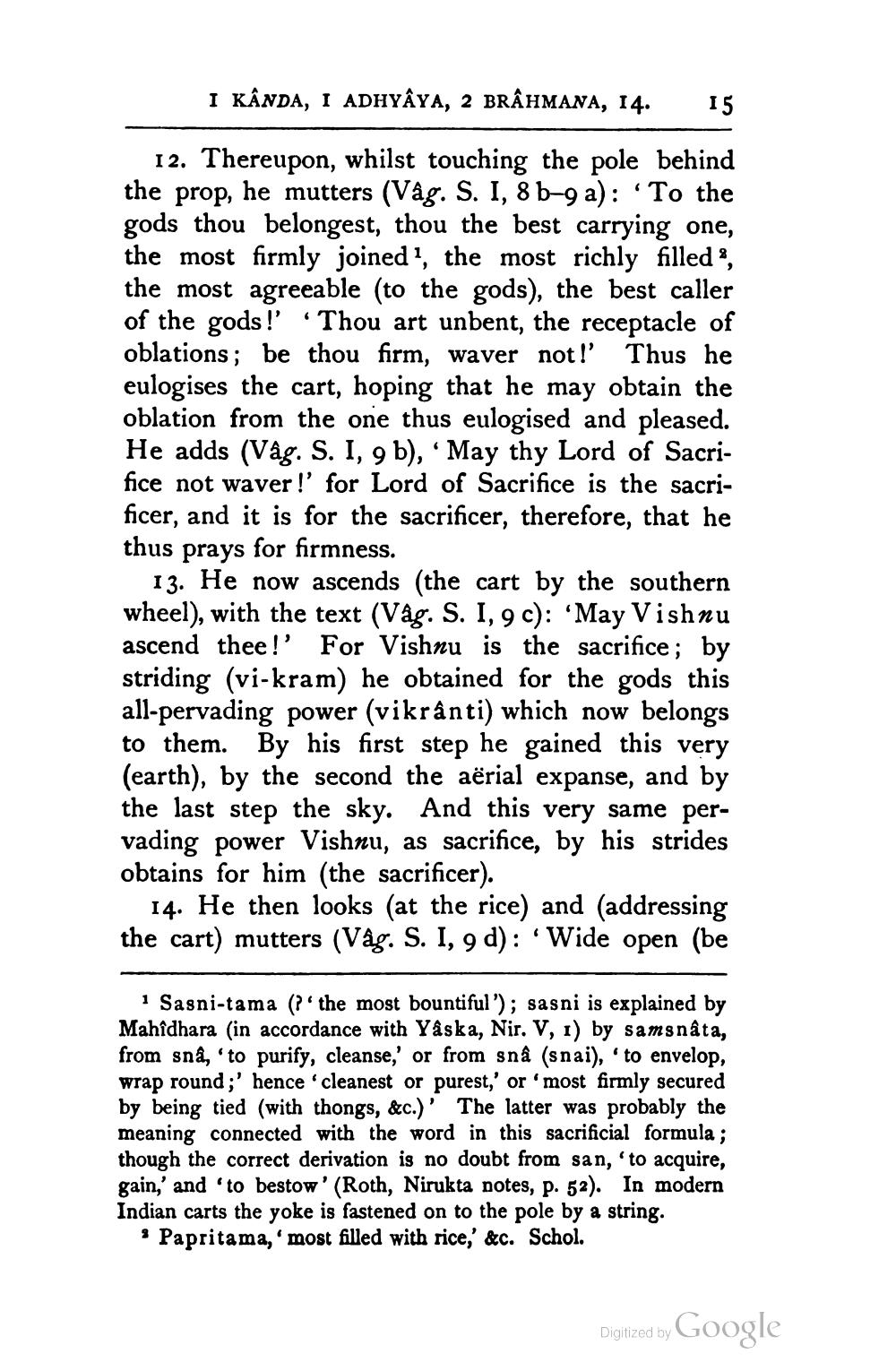________________
I KANDA, I ADHYAYA, 2 BRAHMANA, 14. 15
6
12. Thereupon, whilst touching the pole behind the prop, he mutters (Vâg. S. I, 8b-9a): 'To the gods thou belongest, thou the best carrying one, the most firmly joined1, the most richly filled 3, the most agreeable (to the gods), the best caller of the gods!' Thou art unbent, the receptacle of oblations; be thou firm, waver not!' Thus he eulogises the cart, hoping that he may obtain the oblation from the one thus eulogised and pleased. He adds (Vâg. S. I, 9 b), ' May thy Lord of Sacrifice not waver!' for Lord of Sacrifice is the sacrificer, and it is for the sacrificer, therefore, that he thus prays for firmness.
13. He now ascends (the cart by the southern wheel), with the text (Vâg. S. I, 9 c): 'May Vishnu ascend thee!' For Vishnu is the sacrifice; by striding (vi-kram) he obtained for the gods this all-pervading power (vikrânti) which now belongs to them. By his first step he gained this very (earth), by the second the aërial expanse, and by the last step the sky. And this very same pervading power Vishnu, as sacrifice, by his strides obtains for him (the sacrificer).
14. He then looks (at the rice) and (addressing the cart) mutters (Vâg. S. I, 9 d): 'Wide open (be
1 Sasni-tama (?' the most bountiful'); sasni is explained by Mahîdhara (in accordance with Yâska, Nir. V, 1) by samsnâta, from snå, 'to purify, cleanse,' or from snâ (snai), 'to envelop, wrap round;' hence cleanest or purest,' or 'most firmly secured by being tied (with thongs, &c.)' The latter was probably the meaning connected with the word in this sacrificial formula; though the correct derivation is no doubt from san, 'to acquire, gain,' and 'to bestow' (Roth, Nirukta notes, p. 52). In modern Indian carts the yoke is fastened on to the pole by a string. Papritama,' most filled with rice,' &c. Schol.
Digitized by
Google




